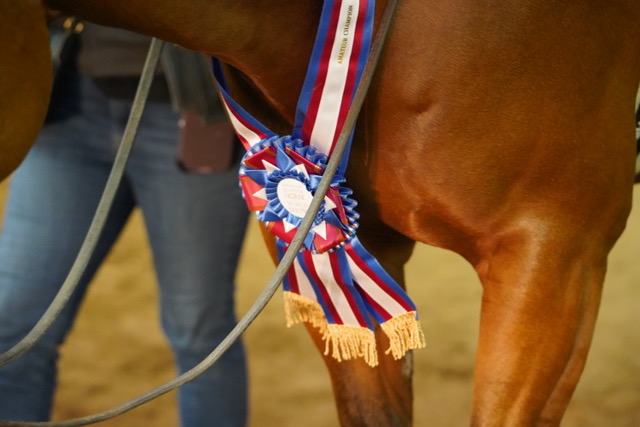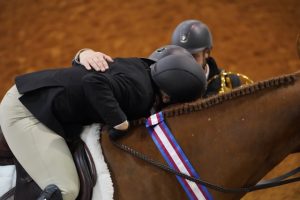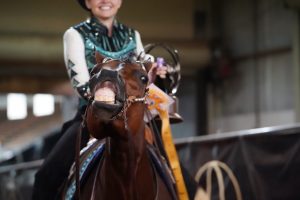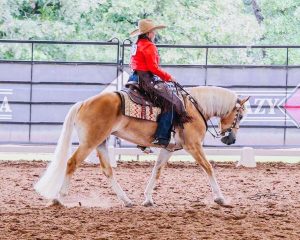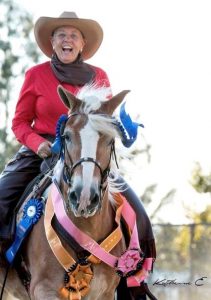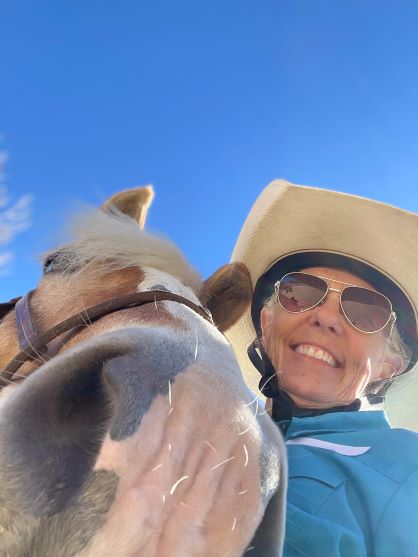The Evolvement of Horse Shows: Have They Become A Luxury Hobby?
The discussions online about the expense of today’s shows, and the root of the cause, are rampant. It’s not so simple, really, explains Suzanne Vlietstra, the former owner of Hobby Horse Clothing Co. Inc., for 40 years. She begins with this:
Think about shows have changed. Many of us grew up with volunteer-run club shows as the backbone of our competitive experience. Mom helped in the entry booth, dad worked the back gate, and the modest show grounds on the edge of town were maintained by the local saddle club. Costs were low because land was cheap and labor was free.
Read the rest here:
The Evolvement of Horse Shows – An EC Blog by Suzanne Vlietstra
Think about how shows have changed too, though. Many of us grew up with volunteer-run club shows as the backbone of our competitive experience. Mom helped in the entry booth, dad worked the back gate, and the modest show grounds on the edge of town were maintained by the local saddle club. Costs were low because land was cheap and labor was free.
Then in about the 90’s and onward the big group of baby boomers competing wanted more. Shows were big and horses became more specialized. Futurities blossomed and fancy show facilities with professional management and fancy footing and huge infrastructure prospered… prices and expectations rose, but there were enough entries and horsemen to support these new kinds of shows. World shows split into youth, open, and amateur events, and folks drifted away from the local saddle clubs. The footing wasn’t good enough, the judges weren’t sophisticated enough, the important trainers didn’t support the grass roots shows because there was more prize money and prestige at the regional and national level.
The baby boomers started to age, and the senior amateur divisions became the money-makers for trainers and shows. Kids had other stuff to do: screens and scholastic pressure and less rural lifestyles, plus smaller populations of younger folks, reduced the potential riding population coming up through the pipeline. Other kid activities became more organized and sophisticated: AYSO soccer, dance and sports leagues, and gaming were easier for many parents to understand and support. Parents didn’t have to maintain community ballparks like they did riding club facilities, and gradually horses became a more exotic sport for both families and communities to support.
Then we had The Great Recession around 2008. Horse breeding fell in half more or less, and has never recovered. With fewer horses being produced, prices for even average horses started to rise and costs to own horses and keep them on land that was more profitably used for housing pinched our market. Local stables and riding clubs began to sell for development, and they won’t be back. The people most active with horses had deeper pockets of both money and time to travel and compete at big shows, or they turned to one-on-one sports like dressage and trail riding to keep enjoying their horses.
Covid was an anomaly, a once-in-a-century pause in Pell-mell urbanization and automation that our societies have been chasing. For a moment, families went outside together and society paused in its relentless chasing of efficiency and rewards, and horses had a moment. But it was brief and has largely passed.
As I see it, yes, horses are expensive- but they’ve always been a luxury especially if you can’t keep them at home. Shows changed from grass-roots play days to elaborate multi-day events based on prize money, not family fun. Breeding turned from a local endeavor to creating super-horses with a diminishing gene pool of a handful of momentarily-popular horses whose shipped semen made local farms obsolete, even as their land was being sold for development… many, many factors over the last 20 or 30 years have led us to today.
The most important factor, in my opinion, is the aging of baby boomers. The biggest generation in history, and the last to grow up with horses as heroes on TV, is aging out (and so are their horses. What’s the average age of horses in your barn these days?) The youngest boomers are now 60, and if they’ve kept/found/or rediscovered a passion for horses, and now have the time and money to pursue their equestrian dreams… fear of injury, time commitments to family, and freedom to travel and enjoy the good life other than spending days wondering when their class will finally go in the ring, impinge on their horse plans.
None of these things are absolute of course but I see many moving pieces drawing to today’s reflection point about the horse business. The only certainty is change- are we ready to accept it and create new ways to enjoy all that a life including horses has to offer, or will we look to the past and blame history for where we are today?
I see a lot of positives and opportunities in the horse world of tomorrow- but I also see rapid change and a very different-looking horse world for our grandkids than what we enjoyed. It’s going to be a rough trail to tomorrow.
And it’s just evolution and the march of time. Things change, but there are definitely enchanted times when things are in sync… the trick is to recognize and appreciate those great eras when you’re in the middle of them… and that happens when you live in deliberate gratitude.
- Photo of Suzanne by Stein
- Photo of Suzanne by Katherine E
From Suzanne:
I come to those thoughts from a lifetime in horses- many disciplines- but never as a breeder or trainer. I’m the consummate amateur, but I owned a horse-related manufacturing company for 40 years (Hobby Horse Clothing Co. Inc- we made show apparel) and concurrently I owned a 60 horse boarding stable for 16 years.
Both horse-related businesses were fascinating laboratories for watching the horse world from a slightly different vantage point than most who guide the industry.










